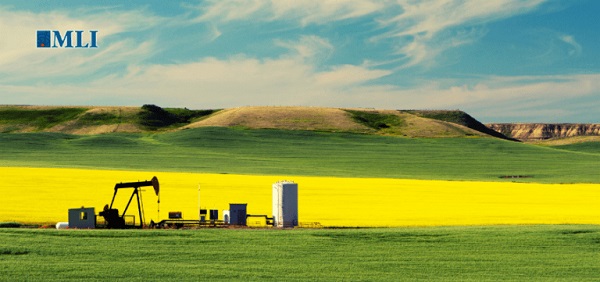Alberta
Alberta Institute – Provincial election roundup Day 5
From the Alberta Institute
Campaign Roundup – Day 5:
- Danielle Smith appeared on Global News Morning. She discussed the recent dip and then recovery in oil prices and her plans for fiscal responsibility in the event of fluctuations in the market, noting that the UCP paid down debt and has guaranteed a balanced budget. Smith also assured Albertans that, even during the ongoing campaign while the government is in caretaker mode, the wildfire situation in the province is still being actively managed.
- Speaking of wildfires, the Emergency Management Cabinet Committeemet today at 2:30 pm to discuss the current wildfire situation. During election periods, Cabinet retains its decision-making abilities with regard to emergency situations, and the government is getting resources to where they need to be.
- Danielle Smith also filmed a video thanking firefighters and encouraging Albertans to stay up to date on all evacuation orders. She offered some tips on things to bring with you if you must evacuate, and reminded people about fire bans and off-road restrictions in many parts of the province.
- Rachel Notley also thanked firefighters for their hard work and urged people to follow the restrictions that are in effect.
- The NDP held an education-focused press conference where Rachel Notley attacked the UCP for cutting education funding and announced the NDP’s plan to reduce class sizes by spending $700 million to hire 4,000 more teachers and educational assistants.
- Adriana LaGrange, UCP Education Minister, said that Rachel Notley’s claims about cuts were a lie and that education funding has increased under the UCP. She also noted that the NDP’s proposed $700 million for new teachers is actually $120 million less than the $800 million the UCP has announced for exactly the same thing.
- Candidates from both parties are imploring people not to vandalize election signs, no matter which party you support. We agree – volunteers work hard to mobilize for the candidate of their choice – the best way to support your preferred party is at the polls!
Support Our Work:
The Alberta Institute doesn’t accept any government funding and never will. We think you should be free to choose, for yourself, which organizations to support. If you’re in a position to contribute financially, you can make a donation here:
If you’re not in a position to donate, we understand, but if you appreciate our work, you can help by spreading our message. Please forward this email to your friends, follow us on Facebook and Twitter, and help make sure every Albertan knows what’s going on in our province.
Alberta
Big win for Alberta and Canada: Statement from Premier Smith

Premier Danielle Smith issued the following statement on the April 2, 2025 U.S. tariff announcement:
“Today was an important win for Canada and Alberta, as it appears the United States has decided to uphold the majority of the free trade agreement (CUSMA) between our two nations. It also appears this will continue to be the case until after the Canadian federal election has concluded and the newly elected Canadian government is able to renegotiate CUSMA with the U.S. administration.
“This is precisely what I have been advocating for from the U.S. administration for months.
“It means that the majority of goods sold into the United States from Canada will have no tariffs applied to them, including zero per cent tariffs on energy, minerals, agricultural products, uranium, seafood, potash and host of other Canadian goods.
“There is still work to be done, of course. Unfortunately, tariffs previously announced by the United States on Canadian automobiles, steel and aluminum have not been removed. The efforts of premiers and the federal government should therefore shift towards removing or significantly reducing these remaining tariffs as we go forward and ensuring affected workers across Canada are generously supported until the situation is resolved.
“I again call on all involved in our national advocacy efforts to focus on diplomacy and persuasion while avoiding unnecessary escalation. Clearly, this strategy has been the most effective to this point.
“As it appears the worst of this tariff dispute is behind us (though there is still work to be done), it is my sincere hope that we, as Canadians, can abandon the disastrous policies that have made Canada vulnerable to and overly dependent on the United States, fast-track national resource corridors, get out of the way of provincial resource development and turn our country into an independent economic juggernaut and energy superpower.”
Alberta
Energy sector will fuel Alberta economy and Canada’s exports for many years to come

From the Fraser Institute
By any measure, Alberta is an energy powerhouse—within Canada, but also on a global scale. In 2023, it produced 85 per cent of Canada’s oil and three-fifths of the country’s natural gas. Most of Canada’s oil reserves are in Alberta, along with a majority of natural gas reserves. Alberta is the beating heart of the Canadian energy economy. And energy, in turn, accounts for one-quarter of Canada’s international exports.
Consider some key facts about the province’s energy landscape, as noted in the Alberta Energy Regulator’s (AER) 2023 annual report. Oil and natural gas production continued to rise (on a volume basis) in 2023, on the heels of steady increases over the preceding half decade. However, the dollar value of Alberta’s oil and gas production fell in 2023, as the surging prices recorded in 2022 following Russia’s invasion of Ukraine retreated. Capital spending in the province’s energy sector reached $30 billion in 2023, making it the leading driver of private-sector investment. And completion of the Trans Mountain pipeline expansion project has opened new offshore export avenues for Canada’s oil industry and should boost Alberta’s energy production and exports going forward.
In a world striving to address climate change, Alberta’s hydrocarbon-heavy energy sector faces challenges. At some point, the world may start to consume less oil and, later, less natural gas (in absolute terms). But such “peak” consumption hasn’t arrived yet, nor does it appear imminent. While the demand for certain refined petroleum products is trending down in some advanced economies, particularly in Europe, we should take a broader global perspective when assessing energy demand and supply trends.
Looking at the worldwide picture, Goldman Sachs’ 2024 global energy forecast predicts that “oil usage will increase through 2034” thanks to strong demand in emerging markets and growing production of petrochemicals that depend on oil as the principal feedstock. Global demand for natural gas (including LNG) will also continue to increase, particularly since natural gas is the least carbon-intensive fossil fuel and more of it is being traded in the form of liquefied natural gas (LNG).
Against this backdrop, there are reasons to be optimistic about the prospects for Alberta’s energy sector, particularly if the federal government dials back some of the economically destructive energy and climate policies adopted by the last government. According to the AER’s “base case” forecast, overall energy output will expand over the next 10 years. Oilsands output is projected to grow modestly; natural gas production will also rise, in part due to greater demand for Alberta’s upstream gas from LNG operators in British Columbia.
The AER’s forecast also points to a positive trajectory for capital spending across the province’s energy sector. The agency sees annual investment rising from almost $30 billion to $40 billion by 2033. Most of this takes place in the oil and gas industry, but “emerging” energy resources and projects aimed at climate mitigation are expected to represent a bigger slice of energy-related capital spending going forward.
Like many other oil and gas producing jurisdictions, Alberta must navigate the bumpy journey to a lower-carbon future. But the world is set to remain dependent on fossil fuels for decades to come. This suggests the energy sector will continue to underpin not only the Alberta economy but also Canada’s export portfolio for the foreseeable future.
-

 Business2 days ago
Business2 days agoSaskatchewan becomes first Canadian province to fully eliminate carbon tax
-

 Automotive2 days ago
Automotive2 days agoElectric cars just another poor climate policy
-

 International2 days ago
International2 days agoTrump’s ‘Golden Dome’ defense shield must be built now, Lt. Gen. warns
-

 Alberta2 days ago
Alberta2 days agoOwner sells gas for 80 cents per litre to show Albertans how low prices ‘could’ be
-

 2025 Federal Election1 day ago
2025 Federal Election1 day agoMORE OF THE SAME: Mark Carney Admits He Will Not Repeal the Liberal’s Bill C-69 – The ‘No Pipelines’ Bill
-

 Break The Needle1 day ago
Break The Needle1 day agoWhy psychedelic therapy is stuck in the waiting room
-

 Energy2 days ago
Energy2 days agoWhy are Western Canadian oil prices so strong?
-

 Automotive1 day ago
Automotive1 day agoTrump Must Act to Halt the Tesla Terror Campaign






